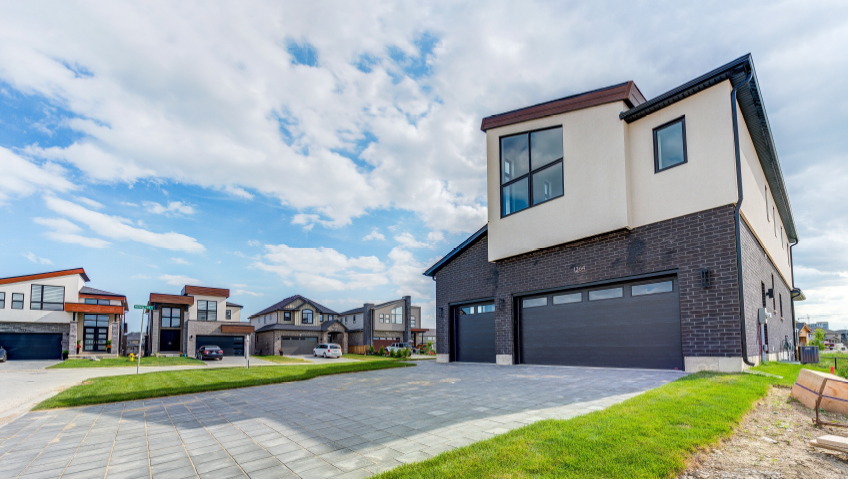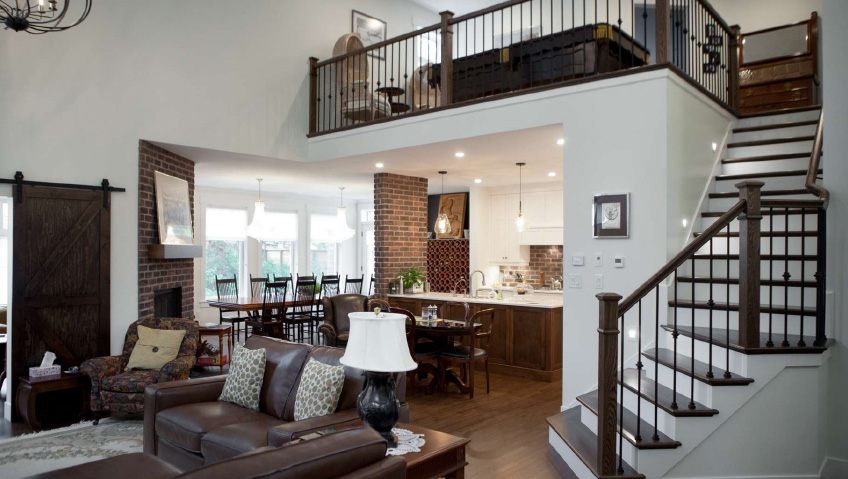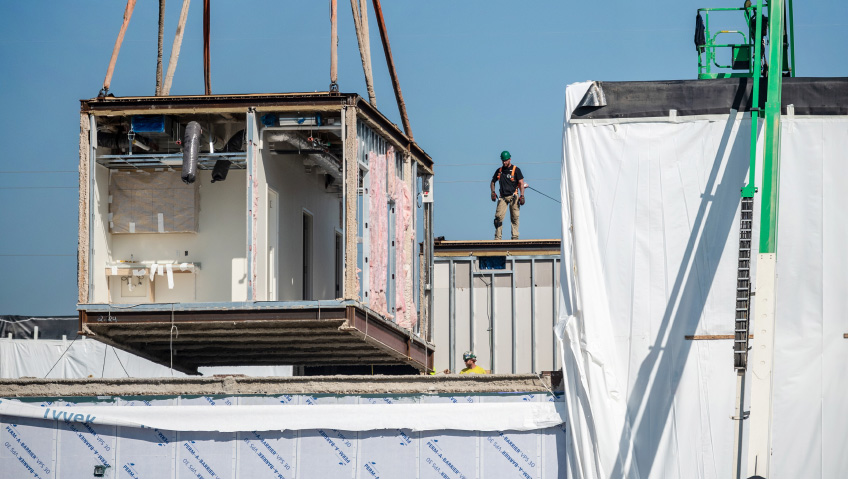It’s one story that never gets old.
A family moves from one country to another, works very hard, and finds success that’s passed on to the next generation. North America may have a prouder history of this than anywhere else—immigrants arriving and making their mark on communities in all industries and businesses. Best of all, each of these stories is unique and broadens our belief in what can be achieved.
That’s the story behind Forever Homes of London, Ontario. Founders Richard Fung and Betty Tam arrived in Canada from Hong Kong in 1990 and the company has been building new homes since 1993.
And while Forever Homes has constructed many wonderful homes, the company has also expanded beyond that to building communities. Vice President of Operations and son of the founders, Jeff Fung, talks about what makes Forever Homes special as the company marks its 30th anniversary. “We’ve become multifaceted and offer a variety of services,” he says. Beyond homes, we have a land development division that takes undeveloped land and puts the roads and infrastructure in. We’re also looking to build more low- and high-rise apartment buildings.”
Affordable housing – a labour of love
An important portion of the projects that Forever Homes focuses on is building affordable housing. It’s a need that has become particularly acute lately and one that’s very close to the company’s founders. “When my parents came to Canada, the immediate goal was just to provide for the family,” says Fung.
This is a common theme for many new immigrants and today it is made more complex by the rise in housing prices. What was once affordable is now out of reach for many who are starting out. For the Fungs, before Forever Homes and before owning their own home, trying to find work in a new homeland to sustain themselves was the primary goal. This included working at a deli counter at a local grocery store and taking any other available jobs. Eventually, they were able to buy a home and provide more stability.
But the couple was also entrepreneurial, having run a successful printing business when they lived in Hong Kong, and they started up a small building business, first with renovations, and then building homes.
“It started off like any kind of small business; you just want to make it a sustainable business. And then you start thinking about other things and directions for growth,” Fung says. But as the business expanded, the importance of housing affordability was never out of mind. And today the Fung family still stands behind the sentiment of going the extra mile for customers, helping them feel confident and comfortable with their move to a Forever Homes property.
Experts and builders all agree, given the current state of housing affordability in Ontario, that more supply is needed to help slow the skyrocketing costs and meet the demands of a quickly increasing population. To that end, the Ontario government has committed to supporting the construction of 1.5 million homes over the next decade.
“It’s easier said than done. Even if the government can approve 1,000 homes next week, do you have the physical labour to build them?” says Fung. The opportunity is there, but there are hurdles like getting approval to build and other red tape requirements that can keep projects in limbo for some time.
Drive to diversify
That’s why diversifying the profile of Forever Homes by including apartment rentals and student housing features prominently in the business strategy. “The market is cyclical, there will be down points. A few years ago we were in an upward trend,” says Fung. “So staying in the marketplace is not always about how many homes you can build or how fast you can build them—it’s about if you can maintain yourself in the marketplace.”
With all this knowledge of industry and market trends, you might think that Fung has always been in the family business, but that’s not the case. “Probably like many kids that have parents who are home builders, I did things like sweep the floors and those basic jobs growing up in the summers, but I never wanted anything to do with the business when I was young,” he shares.
Instead, Fung went to university, earned a degree in accounting, and travelled for a time after graduating. It was about that time that Forever Homes was working on a student residence around Fanshawe College in London. “My dad needed some help looking after that. So he said, ‘Why don’t you just come and help me for a year or two? If you like it, great. If you don’t, you learned a little bit for a year or two.’”
Jeff has stayed with the company and helped expand its presence in the market. Along with Phil Gonzalez, Vice President of Construction, the two are looking to steer the next 30 years for the company. Says Fung: “Whether it’s a house or an apartment, you touch many different fields, from legal to financial to municipal and governmental. Then you also work with trades, contractors, and suppliers. So there are a lot of different people that you work with and build relationships with.”
Working with a variety of people to achieve a common goal was what kept him in the business. “I thought it was fun. And I think the nice part is that you have a physical object that’s there at the end. So something is standing that you can drive by and see however many times you want. It’s nice to physically see something you helped make happen and remember the process of getting it done on the job site from start to finish.”
As for trends in the home building industry, one of the major challenges that Fung sees in the near and long-term future is labour transitioning. “I think that’s going to be a challenge—moving from an older generation who worked onsite their whole lives to a newer generation that may not want to be in the cold and rain for four or five months.”
In addition, nothing stays the same in building, and the changing demographic of buyers and their attitudes toward buying may also shift. That’s why rental units in the company’s portfolio could play a bigger role in the long term.
30 years in, a long-term vision
Now, after 30 years in the home-building business, Forever Homes continues to grow to meet the future needs of customers. The long-term vision is to create housing solutions for the many stages of their customers’ lives, helping them transition as needs change and playing a part in their lives forever, as the company name suggests.
“That may start as student housing, which we’ve been a part of before. So they can start renting a student apartment or home or room from us, then transition into a rental apartment when they graduate,” Fung says.
“Maybe they get married and they move into a rental townhome, eventually buy a townhome and move onto a larger house. For most of their lives, they can find a product from Forever Homes that will suit their various needs.”






